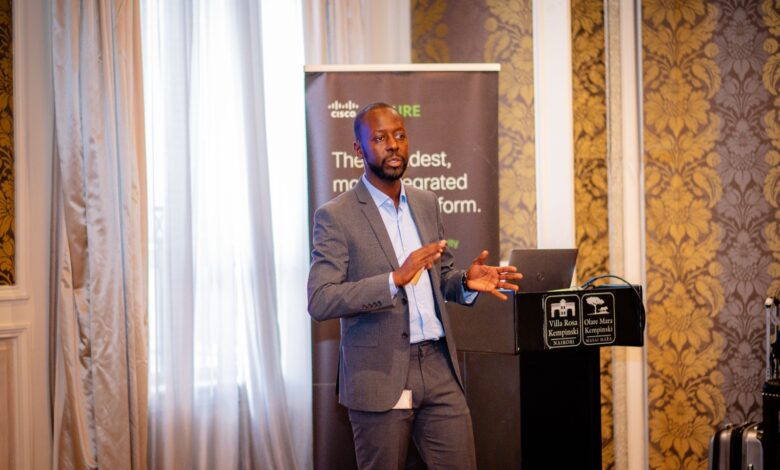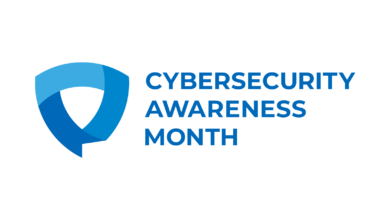Cisco Hosts Discussion On Using AI For Cybersecurity

Babacar Wagne, the Cybersecurity Systems Engineering leader for EMEA region at Cisco, at the Cisco AI for Cybersecurity Roundtable. [Photo: Grahamme Kimani]
There was a time when the internet did not exist, and you only needed to install an antivirus to your computer to shield it from viruses. These are times that we need to cherish because of the nature of cybersecurity today.
Technology has evolved from that to the advent of the internet, mobility, cloud, and now when we are looking at Artificial Intelligence (AI). This evolution means a bigger headache for cybersecurity, because as technology evolves, then the attack surface widens. Whatever the tools you are using in your systems, the hacker also access to it.
To discuss this and look for a solution, Cisco hosted cybersecurity players in Africa for a Breakfast Roundtable at the Villa Rosa Kempinski hotel in Nairobi. The discussions focused a lot on AI for cybersecurity and Cybersecurity for AI, looking at the tools that attackers are using and how we can fortify our defenses to stay safe from attack.
Babacar Wagne, the Cybersecurity Systems Engineering leader for EMEA region at Cisco, was among the speakers at the event and he insisted on how the threat landscape has evolved and continues to evolve.
“It has got to a time where we need to use AI in cybersecurity because we need to drive innovation in security, have a frictionless way of doing security, and also help fill out the skills shortage in the cybersecurity space,” Wagne remarked, adding that Generative AI (GenAI) has had a huge impact on cybersecurity, helping both the attackers and the defense from an organization perspective.
Wagne further said that research has shown that cybersecurity organizations are the most willing to invest in GenAI in order to speed up detection.
On his part, Kelvin Mugambi, the Cybersecurity Solutions Architect for East and West Africa, Cisco, talked about how attackers are using AI to target and attack organizations easily. He also mentioned that the attackers are working together and defenses need to also work together to fortify the fence.
“Attackers are now working together and leveraging on AI to improve their breach chances. In cybersecurity the attacker needs to be successful once while the defense needs to be successful all the time. It’s about time that we bring defenses together to ensure effective cybersecurity,” Mugambi said in his presentation at the roundtable.
He further said that security needs to be incorporated as organizations are working on a project and not look at it as an afterthought. Security needs to be incorporated in the project and needs to be part of it during the whole journey.
“From a user perspective, they need to be able to use the applications provided by an organization without having to worry about which cybersecurity mechanism the organization is using,” Mugambi said.
During this event, Cisco also talked about its cybersecurity strategy that leverages on AI and cloud. The strategy depends on three pillars which are ‘assist’, ‘augment’, and ‘automating’.
Using the Cisco AI Assistant, the company seeks to ease how organizations can interact with the security solutions they are using. In Augmentation, the goal is to correlate insights at machine-speed and create 10X return on human effort. Lastly in Automating, the goal is to automate complex workflows and reduce the response time.



